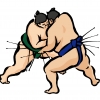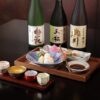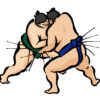What does ikemen(イケメン)mean?

There is a line that a Japanese comedian always says when he appears in TV shows and so on.
“Ramen(ラーメン、拉麺), tsuke-men(つけ麺), boku ike-men!(僕、イケメン!)"
Well, “ikemen” does not mean a kind of Japanese noodles.
It is one of the Japanese slang that is a praise word.
This word is used a lot regardless of age and gender, both on social media and in everyday conversation.
There is also much slang derived from “ikemen".
If you are learning Japanese, “ikemen” is a word that you should know.
Let’s take a closer look at the word.
What doesn “ikemen" means?
“Ikemen" means “a good looking man, a handsome man, a cool man".
The word was originally a spoken word, and it is usually written in katakana.
“Men” in “ikemen” is English “men”, and I know it sounds weird but it does not necessarily mean more than one man.
Originally “iketeru mens” was the title of an article featured by a fashion magazine. (The title meant “several stylish men", but the word “mens" was strange in the first place anyway. It should have been just “men". The person who created the title must have thought that the plural of “man" is “mens"….)
And in the article, the men were called “ike men" which was the short version of the title.
Strictly, if you mean one person, it should be “ike-man”, but this is slang after all, so the word that was easy to pronounce was adopted in everyday conversation.
Therefore, this word is usually used to mean a single person.
On the other hand, there is the word “face” in Japanese that means “face”. Some people say that “men” in “ikemen” means “face".
However, the recognition of “men” is more dominant.
“Ikemen” is sometimes used in combination with other words.
ikemen haiyuu (イケメン俳優:actor)
ikemen seerusu man (イケメンセールスマン:salesperson)
ikemen senpai (イケメン先輩:senior at a school club or the like)
ikemen musuko (イケメン息子:son)
ikemen kun (イケメン君:a friendly title that calls somebody in the same or subordinate position)
ikemen joshi(イケメン女子:cool girl)
fun-iki ikemen(the person is not actually so handsome, but only the person’s atmosphere is cool.)
Tadashi ikemen ni kagiru
Also, “ikemen” seems to be given some social privileges on the Internet. This is a little trend that some girls add this wording at the end of their descriptions of their ideal men. (of course, they mean to be a joke, I believe)
“* Tadashi ikemen ni kagiru (ただしイケメンに限る:limited only for ikemen guys)"
Ike sama
The word “ikesama(池様)” is also sometimes used.
“Ike" has the same sound as the Japanese word “pond(ike、池)" and is given the title “sama(様)", which is used to respect the other party, which makes “ikesama".
It is a short version of “ikemen sama”.
Ike-sama daikanngei. (池様、大歓迎:welcome)
Yasahii ike-sama motomu.(池様、求む:wanted)
Ike-sama, kita —-! (来たー!: Here come)
Similar words to “ikemen"
Examples of Japanese and slang that are used in a similar way to “ikemen":
iketeru(イケてる)
hansamu (ハンサム:handsome)
kakko ii(カッコイイ、恰好いい)
otoko-mae(男前)
ii otoko(いい男)
mote otoko(モテ男)
iro-otoko(色男)
ike sama(池様)
kirao(キラ男)
ikasu(イカす)
nimaime(二枚目)
Busamen (ブサメン)?
So what is the opposite of “ikemen”?
It is the word “busa men”.
“Busa” comes from the word “busaiku”.
“Busaiku” means it is not good looking or looks ugly.
Recently, a new word “ikemen(逝け面)” has appeared that has the same sound of the “ikemen” mentioned above.
The kanji used in this word is a bit unkind.
“Ike” means “you die”, and “men” in this case means face.
Perhaps someone on the Internet was acclaiming that singer/actor was ikemen. Another person who read the remark couldn’t agree and came up with the word.
In addition, there are also some similar words.
“Kimo men(キモメン)” (kimoi mens)
an unpleasant man
“Sike men(シケメン)” (shiketa mens)
a man with a gloomy face.
















